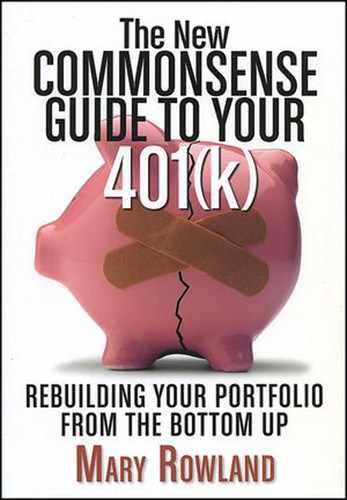TRADITIONAL ADVICE TO retirees has been to sell your stocks and buy bonds. Stocks are for young, aggressive investors who have time to let their money grow and who can ride out the bumps. Advisors told retirees that they needed the smoother ride provided by bonds, as well as the income, that they no longer needed growth. Basically, retirees have been told that they are in a phase of life when they can safely consume assets.
Times have changed. Bonds have become nearly as volatile as stocks. But they still hold less return potential than stocks. Retirees need that extra return because many, particularly the elderly, don't have much flexibility in generating earned income. Inflation looms large when earned income stops. And life expectancies have increased so much that retirees cannot safely begin consuming assets when they first retire.
Indeed, the biggest risk in retirement is longevity risk, or the risk that you will outlive your money. Ethan E. Kra, chief actuary for retirement at Mercer and my best source on this issue, has done considerable work on longevity risk. The statistics here belong to his research: The average sixty-five-year-old has no conception of the longevity risk he carries, Kra says. A sixty-five-year-old couple has a one in four chance that one of them will celebrate a ninety-fifth birthday. They have a one in ten chance that one will live to one hundred and beyond.
If you can leave a good chunk of your money in stocks, you should have more money to live on in retirement. We all know what happened to the money in the stock market in 2008 and the first quarter of 2009 and most of us will feel gun-shy of dumping everything into stocks.
Money that you will not need to live on in retirement for five years or more is a good candidate for the stock market. That said, managing stocks when you retire requires substantial time for research on your part or the help of a professional financial advisor. Do not believe that any stock investment is guaranteed. If it were guaranteed, it would not have the potential for higher return. The potential for a high return also means the potential for a high loss.
If we could learn one lesson from the market crash of 2008 and 2009, this should be it: Stock investments are never guaranteed. The experience of target-date funds during the crash is a good example of this. These funds were developed to offer investors—particularly those in 401(k) plans—a diversified investment with a target date such as 2010 and a "glide path" that grows gradually more conservative as the date approaches.
Do investors know that? A survey by Envestnet Asset Management in May 2009 found that only 16 percent of respondents said they had ever heard of target-date funds and 63 percent of those incorrectly described them. The respondents were given a description of the funds to read. After reading it, nearly two-thirds thought they would be able to retire on the fund's target date. The same number believed the funds enabled them to spend less time tracking their progress toward retirement goals. Nearly half said they could stop worrying about investment and savings decisions and leave it to a professional. About 38 percent of respondents believed the funds would produce a guaranteed return. Worse yet, more than one-third believed their money would grow faster in target date funds than in other investments, and nearly 30 percent believed they could save less money with the funds and still meet retirement goals.
What should we make of these survey results? Critics say the funds have not adequately communicated what they are about. But don't we as investors share any of the responsibility? In thirty years of writing about business and investments, I've come across hundreds of investors who were clearly duped. I've also come across hundreds of investors who weren't paying attention. I don't want to let any salesman off the hook. But this is your retirement money! You should not just drift into complacency. The time to find out what you have invested in is now! You should invest in stocks. You should never believe that stocks offer a guarantee of anything. If we could get that one piece of investor information out there, all investors would be much better off.
